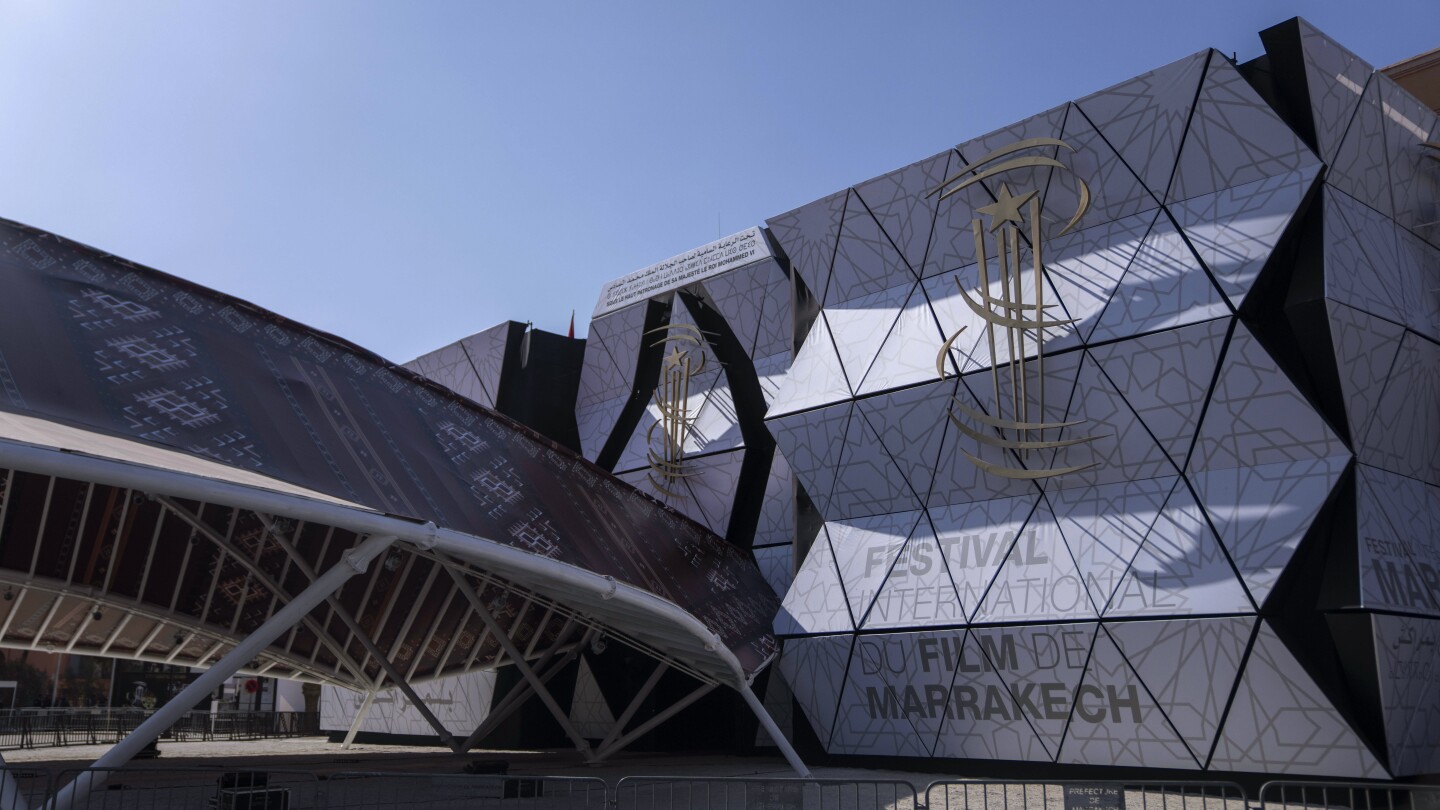MARRAKECH, Morocco (AP) — Thirty years ago, Palestinian actor Hiam Abbass left her home to pursue her dreams of being in the movies, joining generations of women in her family who were shaped by exile and “learned to leave everything and start anew.”
That’s one of the stories told in her director daughter Lina Soualem’s documentary “Bye Bye Tiberias,” which received a standing ovation and shouts of “Long Live Palestine” on Saturday night at the Marrakech International Film Festival for the film’s first screening in the Arab world.
The documentary, the Palestinian entry for next year’s Academy Award for Best International Feature, follows Abbass and Soualem as the mother-daughter pair laugh, cry and tell the story of four generations of women in their family.
“Bye Bye Tiberias” first premiered at the Venice International Film Festival, more than a month before the start of the latest Israel-Hamas war, sparked by the militant group’s deadly incursion into Israel on Oct. 7.
It is the only Palestinian film in competition in Marrakech, where festival organizers have, unlike past years, not held screenings in a popular square that has seen protests against the war.
Introducing the documentary on Saturday, Soualem and Abbass acknowledged it was an emotional time to present the film, thinking about the children and grandchildren of Palestinian refugees in Gaza.
Soualem declined to answer a question about how today’s war affected reactions to her film. Speaking carefully, she later said that she felt the emotional response from festival audiences in Europe and the United States and noted her emphasis on offering a different Palestinian narrative amid current events, humanizing Palestinian women and the complex choices they make throughout their lives.
“Our hearts are heavy, seeing everything happening in Gaza — all the destruction and all the deaths, which we are mourning,” she said in an interview with The Associated Press on Sunday. “Every screening, there is a sense of repair and warmth. There’s a lot of people who feel that they cannot speak or they are silenced.”
“Bye Bye Tiberias” splices together intimate interviews of Soualem’s family members, primarily her mother, Abbass, known to both Arab and Western audiences from her work in the television series “ Succession ” and “ Ramy ” as well as films such as “The Lemon Tree” in 2008, the Blade Runner 2049 in 2017, and “Gaza mon amour” in 2020.
It builds off Soualem’s first documentary “Their Algeria” — another personal history about her grandparents’ exile from North Africa and move to France amid war and economic downturn.
Unlike other Palestinian narratives, which focus on the broad diaspora, the Gaza Strip or the occupied West Bank, “Bye Bye Tiberias” documents a family displaced by the 1948 Arab-Israeli war from one city to another within modern-day Israel, where they retained citizenship but lived in a Palestinian village largely segregated from Jewish Israeli life.
Abbass rolls her mother Nemat in a wheelchair past Hebrew street signs and a now-dilapidated mosque in modern-day Tiberias as Soualem explains how the 1948 war upended her grandmother’s education and “propelled her at full speed into history.”
Intimate interviews are spliced with excerpts from home movies shot by Soualem’s father at their family’s home in Deir Hanna, and archival footage spanning back to 1948.
That year, the British ordered the family to leave their home in Tiberias, a city on the shores of the Sea of Galilee. The home was later destroyed, the family was prohibited from returning and its members resettled far and wide, including in Syria and Deir Hanna, a Palestinian village within the borders of modern-day Israel.
“These images are the treasure of my memory that I don’t want to fade,” says Soualem, who narrates the documentary.
A generation later, living amid such tension “suffocated” Abbass, who emigrated to France three decades ago to pursue her dreams of becoming an actor.
“Today, I wish I could ask my mother if she forgives me for making a choice that was contrary to her traditions and her life,” Abbass says at one point in “Bye Bye Tiberias.”
For much of her daughter’s life, Abbass rarely talked about her departure from the Middle East, not wanting to “open the gate to past sorrows,” Soualem says.
In the film, though, she does. Soualem captures Abbass mourning the loss of her mother, remembering performing in Jerusalem’s Palestinian National Theatre, and peering across the Sea of Galilee trying to digest the enormity of what happened to Palestinian families like hers post-1948, as well as her choice to leave a land that holds great meaning to her.

